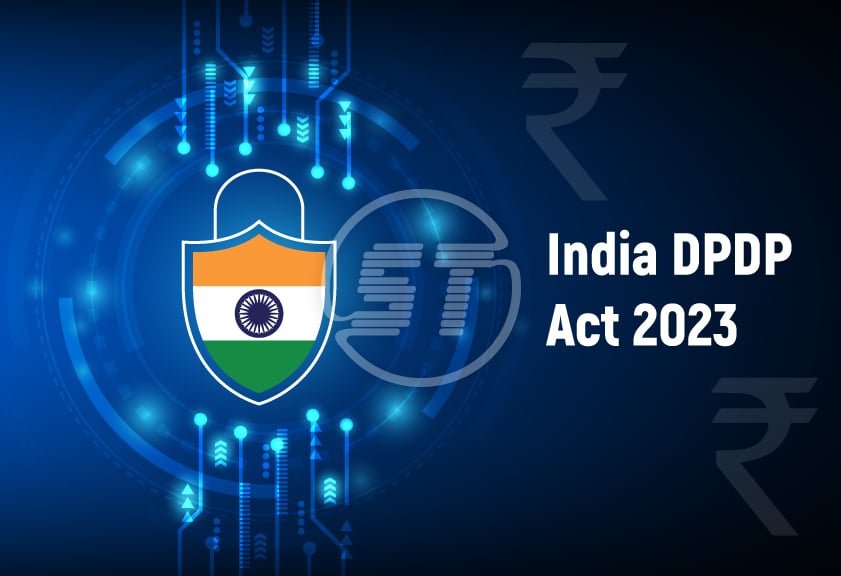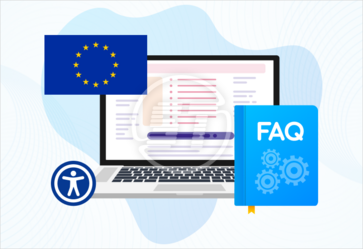The Digital Personal Data Protection (DPDP) Act, 2023, has become a landmark legislation in India’s data protection journey. It marks a significant shift toward privacy-first governance, aligning the country with global frameworks, such as the EU’s GDPR. For businesses that collect, process, or store personal data of Indian citizens, compliance with the Act is not only a legal obligation but also a trust-building opportunity.
To achieve this compliance efficiently, organizations must begin with a privacy gap assessment followed by remediation services - two critical steps in ensuring readiness under the DPDP Act.
Understanding the India DPDP Act 2023
The DPDP Act, 2023, governs how organizations (called Data Fiduciaries) handle digital personal data. It focuses on protecting individuals’ (Data Principals) privacy rights while allowing responsible data use for legitimate business purposes.
Key provisions include:
- Lawful and informed consent before processing personal data.
- Purpose limitation - using data only for stated, legitimate reasons.
- Data subject rights - such as access, correction, and erasure.
- Security safeguards and breach notifications.
- Cross-border data transfer restrictions.
- Significant Data Fiduciary designation, imposing stricter governance requirements.
Non-compliance can result in penalties of up to Rs.250 crore per instance, depending on the severity of the violation.
Privacy gap assessment – What is it?
A Privacy Gap Assessment helps organizations identify where their existing data privacy practices fall short of DPDP Act requirements. It provides a clear roadmap for achieving compliance through structured improvements in governance, technology, and culture.
Key objectives:
- Assess current data collection, storage, and sharing processes.
- Identify compliance gaps in consent, purpose limitation, data rights, and retention.
- Evaluate security controls and incident response measures.
- Recommend corrective actions to meet DPDP obligations.
This assessment serves as the foundation for a robust data protection framework - enabling risk mitigation, transparency, and accountability.
Key areas covered in a DPDP gap assessment
A comprehensive privacy gap assessment typically reviews the following domains:
- Consent management
- Assess how consent is obtained, documented, and managed.
- Verify whether users can easily withdraw consent.
- Data inventory and flow mapping
- Identify what personal data is collected, where it’s stored, and how it’s shared.
- Map data flows across systems, departments, and third-party vendors.
- Purpose limitation and retention
- Review whether data processing aligns with declared purposes.
- Check data retention schedules and deletion policies.
- Data subject rights management
- Examine processes for handling access, correction, and deletion requests.
- Ensure grievance redressal mechanisms are functional and documented.
- Security and breach response
- Assess encryption, access controls, and incident response protocols.
- Evaluate readiness to detect and report data breaches.
- Vendor and third-party compliance
- Review contracts and risk management practices for data processors.
- Ensure third-party data handling meets DPDP requirements.
Privacy remediation services: Bridging the compliance gaps!
Once the assessment identifies deficiencies, privacy remediation services help organizations address and correct them.
Key remediation activities include:
- Policy and framework updates: Draft or revise privacy policies, consent forms, and notices.
- Process enhancement: Establish workflows for consent, right requests, and breach handling.
- Technical implementation: Deploy privacy-enhancing tools for data mapping, anonymization, and access control.
- Training and awareness: Educate employees and stakeholders about data protection obligations.
- Documentation and governance: Maintain processing records, consent logs, and audit trails for compliance verification.
The remediation process transforms privacy from a legal requirement into an operational standard - ensuring sustainable compliance and long-term governance.
Why privacy gap assessment and remediation matter?
- Regulatory compliance
The DPDP Act’s enforcement will demand documented proof of compliance. A structured gap assessment and remediation process helps establish this readiness.
- Risk mitigation
By identifying weaknesses early, organizations can prevent data breaches, avoid financial penalties, and reduce reputational damage.
- Customer trust and transparency
Consumers are increasingly aware of their privacy rights. Demonstrating compliance strengthens brand credibility and customer loyalty.
- Operational efficiency
Streamlining data governance processes reduces redundancy, improves data accuracy, and simplifies reporting.
- Global alignment
Organizations are operating internationally can use DPDP compliance as a foundation for broader alignment with GDPR, CCPA, or other global privacy laws.
How professional privacy services add value
Navigating the compliance journey for the India DPDP Act 2023 can be complex - especially for organizations managing large volumes of personal data across multiple systems, vendors, and jurisdictions. Professional privacy gap assessment and remediation services help simplify this process by combining regulatory expertise, technical know-how, and actionable guidance.
These services go beyond identifying gaps - they help operationalize privacy compliance across people, processes, and technology.
- Expertise in interpreting the DPDP Act
The DPDP Act introduces several new concepts, such as data fiduciaries, significant data fiduciaries, consent-based processing, and data principal rights. Understanding how these provisions apply to the specific business model can be challenging. Privacy consultants bring deep legal and operational expertise, translating the Act’s regulatory language into clear, practical actions.
They ensure that the privacy framework aligns not only with DPDP requirements but also with global standards like GDPR or ISO/IEC 27701, enabling consistency across international operations.
- End-to-End compliance framework design
Professional services help design and implement a privacy management framework that covers all compliance dimensions - from governance to technical security.
This includes:
- Developing data classification models and retention policies.
- Defining accountability structures, such as appointing a Data Protection Officer (DPO).
- Integrating consent management systems into existing platforms.
- Setting up continuous monitoring and audit readiness processes.
The result is a sustainable, long-term approach rather than a one-time compliance exercise.
- Advanced data mapping and risk assessment
Understanding where and how personal data flows within the organization is key to compliance. Professional teams use automated data discovery and mapping tools to create an accurate inventory of personal data, its sources, and third-party connections. They assess risks associated with each data activity - from collection to deletion - and help implement data minimization, encryption, and anonymization strategies.
This ensures organizations know exactly what data they process, why they process it, and how to secure it.
- Customized remediation and implement support
Every organization has unique processes, technologies, and risk exposure levels. Privacy remediation experts design customized action plans tailored to the operational realities.
This may include:
- Redesigning consent workflows and website data collection forms.
- Revising internal data sharing policies and vendor contracts.
- Implementing data subject request (DSR) handling portals.
- Establishing breach notification and escalation mechanisms.
Their involvement ensures that compliance measures are practical, measurable, and integrated into the day-to-day business operations.
- Training and organizational awareness
Compliance cannot succeed without employee awareness. Professional privacy services often include training programs that educate teams about:
- DPDP obligations and penalties.
- Secure data handling practices.
- Customer rights management.
- Incident reporting procedures.
Building a privacy-aware culture ensures that data protection principles are upheld at every organizational level.
- Continuous monitoring and audit readiness
Privacy compliance is not static - it evolves with business growth, new technologies, and regulatory updates.
Consulting teams establish continuous monitoring mechanisms and periodic audits to evaluate compliance maturity. They help maintain documentation such as Records of Processing Activities (RoPA) and provide readiness reports for regulatory inspections or internal governance reviews.
This proactive approach keeps the organization compliant, even as the legal and digital landscape changes.
- Strategies for business advantage
Beyond compliance, professional privacy services add strategic value. They help position the organization as a trustworthy, transparent, and responsible data custodian - a powerful differentiator in today’s digital market. By embedding privacy into the business DNA, they not only reduce risk but also enhance customer confidence, investor assurance, and long-term brand equity.
Read more: GIGW 3.0 Government Website Accessibility in India
In a nutshell,
The India DPDP Act 2023 represents a transformative moment in India’s digital economy – placing individual privacy at the forefront of business accountability. To thrive in this privacy-first era, organizations must move beyond reactive compliance and adopt proactive governance.
Conducting a Privacy Gap Assessment followed by structured Remediation Services is the most effective way to achieve and maintain compliance. It enables organizations to identify risks, strengthen data handling practices, and build a culture of trust and transparency.
In a connected world where data drives growth, privacy is a competitive advantage!


